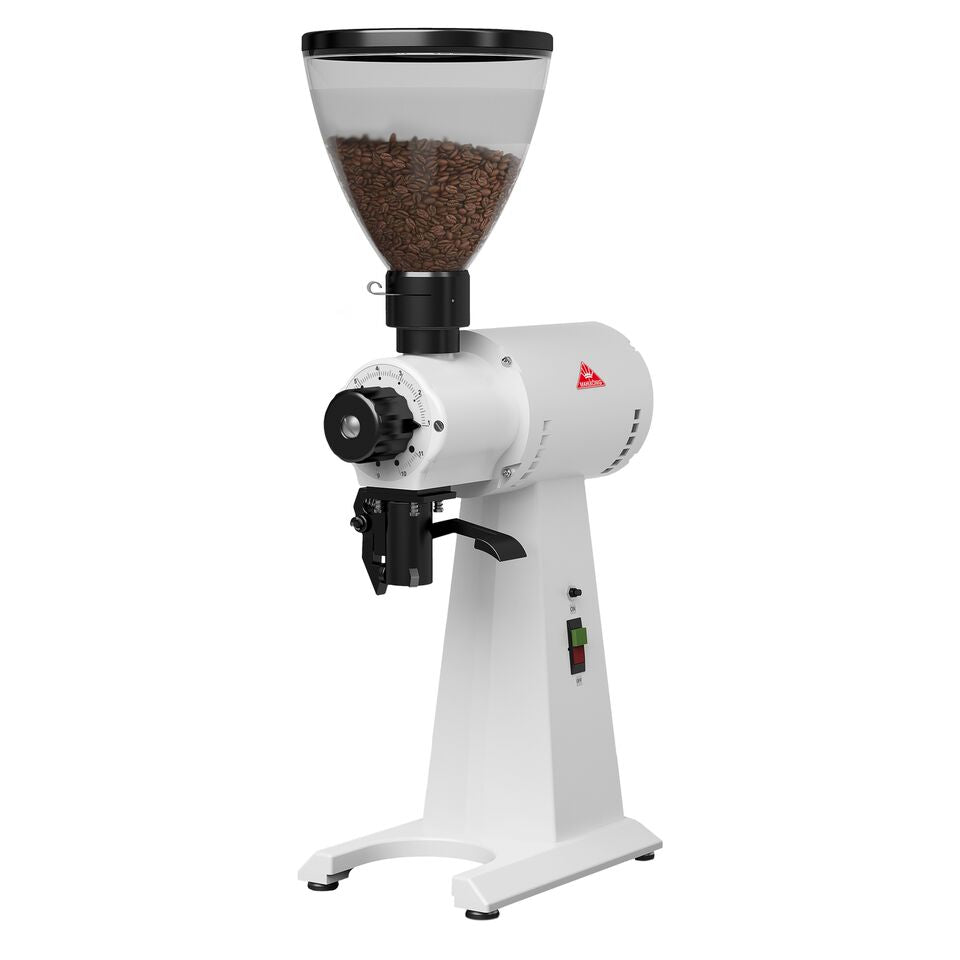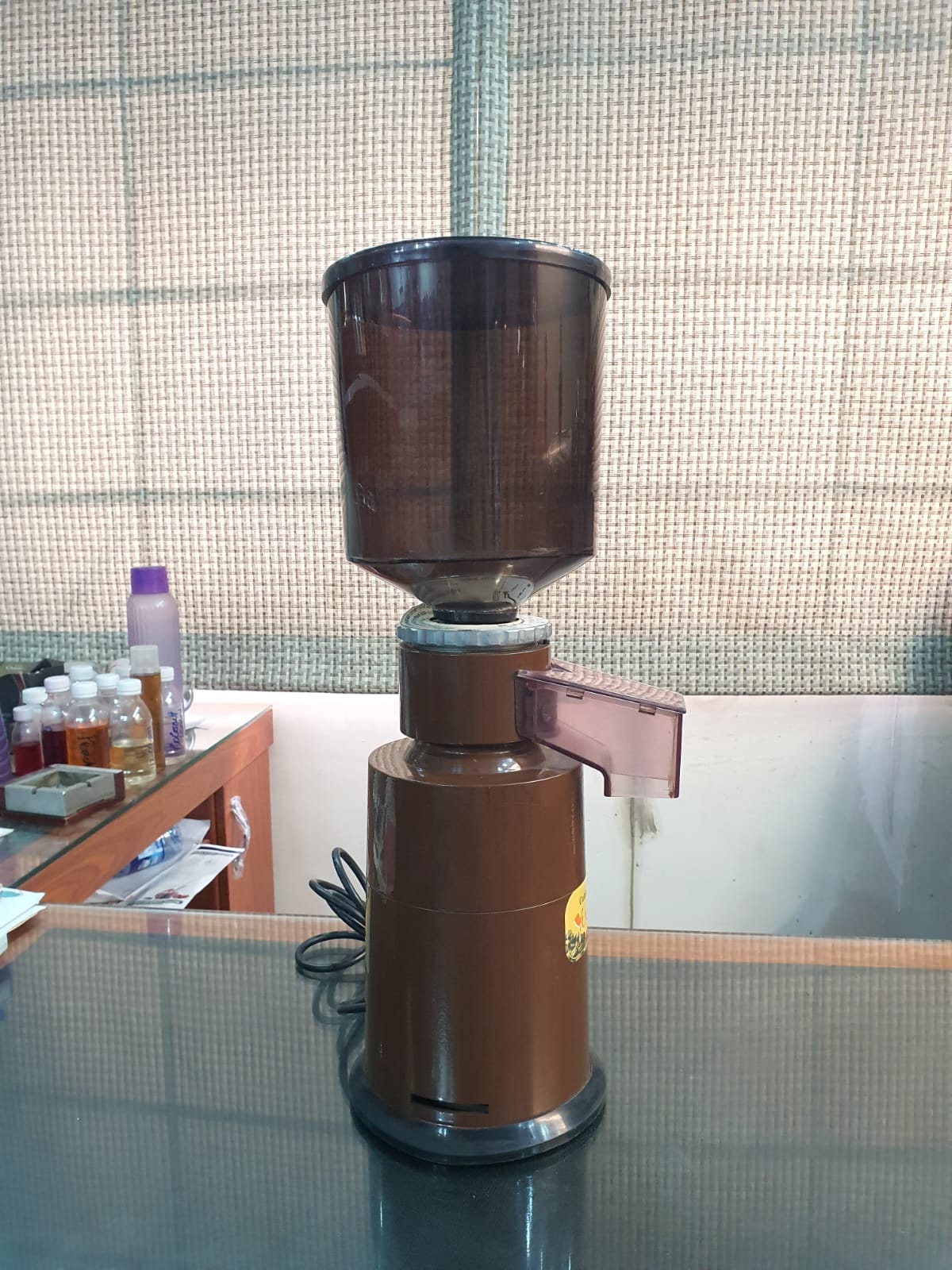Industrial Coffee Grinder: Pros, Disadvantages, and Attributes to Consider
Industrial Coffee Grinder: Pros, Disadvantages, and Attributes to Consider
Blog Article
Industrial Coffee Mill Overview: Boost Effectiveness and Top Quality
In the affordable landscape of coffee production, selecting the ideal industrial coffee mill plays a pivotal role in enhancing both performance and item quality. Understanding the subtleties of various grinder types and key attributes-- such as adjustable work setups and robust building and construction-- can considerably affect the final flavor profile of the coffee. Furthermore, the optimization of the grinding procedure, paired with diligent maintenance, is vital for maintaining efficiency gradually. As we check out these crucial components, it comes to be noticeable that the implications prolong beyond simple devices option, influencing total company success in manner ins which warrant closer assessment.
Understanding Grinder Kinds
When choosing a commercial coffee grinder, comprehending the various types offered is crucial for optimizing both flavor extraction and operational efficiency. Both primary types of grinders are blade grinders and burr mills. Blade grinders use sharp blades that slice coffee beans into inconsistent dimensions, bring about unequal removal and potentially unwanted flavors. While blade mills are typically a lot more inexpensive and ideal for small-scale operations, they are typically not recommended for commercial usage.

Ultimately, choosing the appropriate kind of mill is integral to maintaining top quality and performance in coffee production, making it essential for businesses to purchase high-grade burr mills for optimal outcomes.
Secret Attributes to Think About
Selecting a commercial coffee grinder needs cautious factor to consider of a number of vital features that can considerably affect both performance and the general coffee experience. One of the primary facets to evaluate is the grinding device. Burr grinders are typically favored over blade mills, as they give a consistent grind size, which is critical for ideal removal and flavor.
An additional essential feature is the grinder's capacity. A versatile grinder with multiple setups enables you to customize the work dimension to different developing techniques, enhancing the coffee's flavor account.
Evaluate the mill's noise level, specifically in a busy coffee shop or production setting, where extreme noise can be turbulent. Spending in a grinder that balances these features can substantially improve both functional performance and the high quality of the coffee offered.
Optimizing Grinding Refine
To accomplish the most effective lead to coffee prep work, enhancing the grinding procedure is necessary. The grind size substantially influences extraction, taste, and total top quality Going Here of the brewed coffee. Different developing techniques call for specific work dimensions; for example, espresso demands a great work, while French press requires a crude texture. Recognizing the connection between grind dimension and developing method is the very first step in optimization.


Furthermore, monitoring the grinding rate can maximize the procedure. Slower grinding often generates much less heat, preserving fragile flavors and scents. Conversely, quicker grinding might produce excessive warm, adversely influencing the coffee's top quality.
Maintenance and Treatment Tips
Correct maintenance and treatment of industrial coffee grinders are essential for ensuring ideal performance and longevity. Regular cleansing is the foundation of upkeep; residue buildup can influence taste and grinding effectiveness. It is a good idea to cleanse the mill after each usage, cleaning down the outside and removing any coffee premises from the burrs.
Additionally, inspect the grinding burrs for damage. Plain burrs can compromise find out this here work consistency, so they need to be changed as necessary. Industrial Coffee Grinder. Regularly adjusting the mill is additionally critical, as this keeps the preferred grind size for numerous brewing techniques
Lubrication of moving components must be done according to the maker's requirements, as this minimizes friction and lengthens the life of the tools. It is vital to utilize food-grade lubes to make certain safety and conformity with health and wellness guidelines.
Last but not least, keep the mill in a completely dry and secure environment to stop corrosion and rust. By adhering to these maintenance and treatment ideas, operators can improve the efficiency of their industrial coffee mills while ensuring top notch outcome and expanded functional life.
Roi Analysis
Assessing the return on financial investment (ROI) for commercial coffee grinders is essential for services seeking to optimize their coffee manufacturing abilities. An extensive ROI evaluation aids figure out the monetary feasibility of investing in high-quality grinders, enabling services to consider the first expenses against prospective gains.
Analyze the acquisition cost of the mill, including installation and any kind of essential alterations to existing framework. High-performance mills frequently lead to reduced grinding time and enhanced throughput, which can considerably improve performance.
Additionally, think about the effect on item top quality. Industrial Coffee Grinder. Superior mills produce an even more constant work size, which can boost flavor profiles and consumer contentment, inevitably driving sales. By boosting the top quality of the last product, organizations can validate higher pricing, resulting in enhanced income
Conclusion
In recap, an industrial coffee grinder plays a pivotal role in enhancing both efficiency and product quality within coffee production. By picking high-quality burr mills furnished with vital attributes such as flexible grind settings and resilient building and construction, services can guarantee ideal taste removal. Routine upkeep is crucial for sustaining grinder performance and taking full advantage of customer contentment. Eventually, the critical investment in a trusted mill contributes considerably to improved earnings and competition in the coffee market.
In the affordable landscape of coffee production, selecting the best industrial coffee mill plays a critical duty in boosting both performance and item high quality. The 2 key kinds of grinders are blade grinders and burr grinders. Within the burr grinder category, there are level burr grinders and conical burr mills, each with its over here advantages. Burr mills are typically preferred over blade mills, as they supply a consistent work size, which is essential for optimum removal and flavor.
In summary, an industrial coffee grinder plays a crucial role in boosting both effectiveness and item quality within coffee production.
Report this page